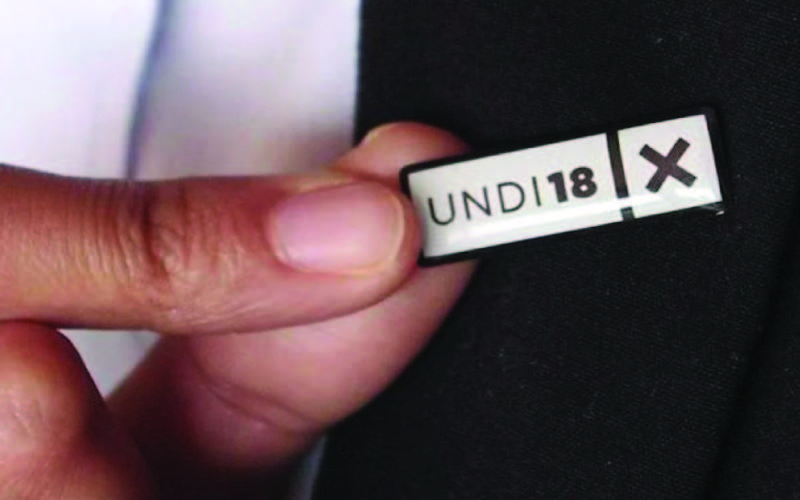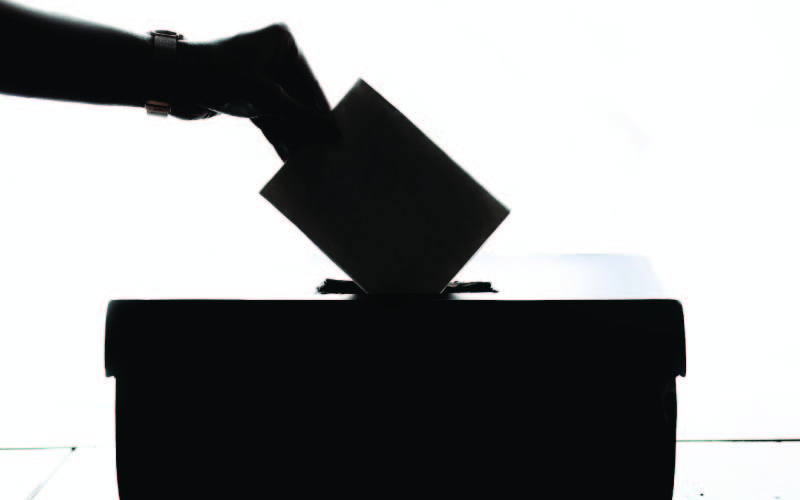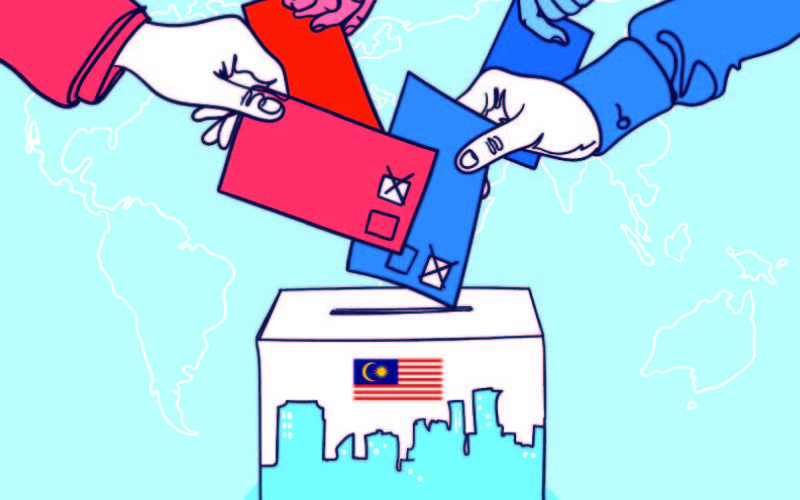Are Malaysian youths really ready to make a change this GE15? We discuss further.
{{ vm.tagsGroup }}
11 Nov 2022
7 Min Read
Ishaanaah Ravi (Guest Contributor), Ailyn Low (Editor)
Are Malaysian youths really ready to make a change this GE15? We discuss further.
On the 1st of December 2021, the nation gathered to celebrate the victory of achieving another milestone; passing the Undi18 bill which allows us, the youth, to have a say in the decision makers of our country. We truly can’t deny the impact of 5.8 million new voters driving change by entering the world of politics and molding the progress of our very own nation
Beyond the surface, however, there are anxious and unfamiliar individuals that aren’t aware of what needs to be done next. Even though we’re known to be the generation that’s more politically aware, our realm of knowledge is limited to conversations led on social media, circulating news (whether true or untrue), and trending memes we see on Reddit.
So one may ask, what do our fellow first-time voters know about our current political scene? Let's untangle this together.
Politics is a complex hierarchy of individuals and policymakers. Hence, it calls out for individuals to be equipped with their country’s voting system before stepping foot into it. Our Undi18 voters are eager to elect our upcoming changemakers, but the question remains about how prepared the group is to face the ballot box. It's not a secret that politics is known to be a taboo conversation in Malaysia, consequently many of us feel isolated or judged when there’s an attempt to encourage voting.
Not to mention the common phrases we hear such as “Don’t act like you’re so patriotic now when you know nothing about politics.” Some would say it’s hard to find the right people to learn from, hinting how politics and election times are known to be fearful, despite acknowledging how significant voting is.
So how are we currently staying informed? According to a study lifted by The Star, 40% of respondents claimed that they had adequate political understanding of the voting system. Nevertheless, those voting for the first time rely primarily on their families and friends to cast their ballots. On the other hand, a study conducted by HRMARS, illustrated media has had a significant toll on our adolescents' political understanding and from that most people rely their voting decisions on posts and opinions expressed online.
The following raises an interesting question: How is our first-time voters' understanding of politics structured?
It’s deemed necessary to applaud our first-time voters on their interest in politics over the years. Number of young voters increased over the course of previous elections, anticipating that the number of young voters will double in the forthcoming round! Furthermore, social media has done wonders in connecting the young people to politics, not to mention the help received from professionals and experienced voters guiding us through this tumultuous process.
Even though social media is widely accepted as the quickest and most thorough source of information, it may not be the most reliable source for decision-making. First, various studies have demonstrated how first-time voters often feel peer pressured when deciding on their voting decisions.
Research conducted by Institution for Democracy and Economic Affairs illustrates how positive peer pressure has encouraged our youth to be patriotic and be involved in the upcoming elections. However, some youths that have minimal to no experience in politics express that they felt pushed to vote for a particular party that they aren't familiar with due to the limited awareness of political candidates and procedures.
The following may be evident as most social media pages illustrate the voting day process and the various parties represented yet there’s limited information shared on the overall picture. This makes it difficult for first-time voters to grasp how their ballot votes will affect the political environment, especially for those eager to learn but don't know where to begin.
One may ask, why isn't there a proper platform or support channel for first-time voters to learn more about what they’re signing up for? Well, there ARE helpful organisations and articles written to clarify Malaysia’s politics — but I believe we could do better.
Political literacy is critical for engaging more young people in politics and empowering them to speak out on issues that affect them and the nation as a whole. Political literacy is promoted through teaching kids about voting, policy comprehension, and social issues that affect the young. As a result, their political literacy is important in making these informed decisions and opinions, making more attention devoted to current events and how they can contribute a priority for us.
This has demonstrated to be influential as a survey conducted in the United States revealed that youths who reported being encouraged or taught how to register and vote in high school are more likely to vote and participate in other civic activities.
However, the most notable backlash to this discussion is the prejudice and distribution that may occur in schools while introducing political literacy, suggesting how social media may be the best we have. First, educators are the most dependable and actively involved in our children's growth and development. As a result, there’s no better method to explain the system than through school educators and youth participation in national policy making through direct talks with legislators in order to go beyond tokenism and boost representation.
In fact, biases in politics have always existed in platforms, like social media, which has a greater potential of influencing our first-time voters. Therefore, it’s critical to understand that we need individuals who can cultivate our youths' knowledge to help manage or remove personal bias during talks. One way educators could achieve this is by creating different parties instead of using names of existing ones in order to navigate the conversation to the system instead of personal biases. This is indeed a big step to ask for, but it’s more reliable than being thrown into a swamp of opinions which may overwhelm new voters.
So, it comes down to the final question: what should we do now? Being politically informed is the ultimate necessity for the upcoming GE15.
While receiving support from family members and friends could ease our voting decision, it’s vital for us to have background knowledge on what the candidate has done in the past and whether it’s helped our nation grow. It’s essential to keep track of the party that your candidate is in and if their manifesto aligns with your needs and wants!
As a start, use the internet to explore the works and evolution that was implemented over the years. However, for those looking into learning about the political system, here are a few resources that you could consider viewing for a comprehensible description:
Once you’ve made an informed decision, you should check online on your ballot location and set a time in which you’re comfortable to go!
This is to ensure that you get to the right place on time and avoid big crowds. Do remember that this is your decision. In any scenario, if you find yourself being peer pressured to share the party you’re voting for or being convinced to vote for someone else, you could always say no!
Lastly, do make sure you read up on the rules and regulation for the GE15 election or find out more about exercising your rights here.
We’ve been overwhelmed and unclear about our nation’s motives before, as much as there’s more that could be done to improve the learning process. There were millions of actions done to get to where we’re now and it’s time to honour what we’ve been battling for. We’ve never been more in control of our voices, as youths, than today. Let’s take ownership of our own learning and make that difference!
We hope to see you step out on the 19th of November and to step out in every other election there is to come!
Ishaanaah Ravi is currently pursuing a Bachelor’s Degree in Education at Taylor's University. She is also a member of the Taylor’s Leo Club and Girl Up. She enjoys reading and creative writing during her free time but also relishes conducting volunteering work, believing that we make a living by what we get, but we make a life by what we give.



